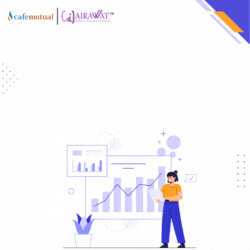Experts say that mutual fund investments are for long-term and they deliver superior returns if held for a longer period.
However, the meaning of long-term varies from advisor to advisor.
In tax parlance, one year is long term for equity mutual funds whereas three years is long term of debt funds.
We spoke to few advisors to understand their views on long-term investment.
Kavitha Menon, Probitus Wealth
In my view, meaning of long term investment depends on market cycles. Equity investments are all about market cycles. Investors should experience at least two market cycles to earn attractive returns. Also, investors who have witnessed at least two market cycles are experienced and can gauge how the market works.
As the current market valuation is very steep, it is unlikely that investors are going to make returns that were possible three years back. Considering the current market rally, long-term would be around 12 years.
Suresh Sadagopan, Ladder7 Financial Advisories
I have broadly divided long term into two parts – equity investments and financial planning.
In equity investments, long term would be more than five years as chances of getting good returns increases with the increase in tenure.
In terms of financial planning, long term depends on the financial goals. An advisor needs at least 10 years to help clients achieve important life goals of clients such as retirement, children education and children marriage.
Gajendra Kothari, Etica Wealth Management
For me, long term investment is 10 years in equity funds. Typically, a market cycle lasts for seven years. Hence, 10 years investment in equity funds ensure that an investor has witnessed at least one market cycle and bought equity fund units in both phases – bear and bull markets. In fact, researchers have found that the chances of losing money in equity funds decreases with the increase in holding period.
In debt funds, the long term depends on interest rate cycle. I strongly believe that long term is 7 years in debt investments. Over the last three years, we have been witnessing falling interest rate regime and before that we had have a rate hike scenario. To earn decent returns from debt funds, investors should experience both scenarios.
Vinod Jain, Jain Investments
The definition of long term varies with the asset class. While equity is for long term investments, I would recommend debt funds for short term goals.
For financial goals with horizon of 10 years, I would recommend my clients to take decent exposure to equity funds. The choice of funds depend on market cycles. For instance, I am inclined towards midcap funds in bearish markets while I will go with diversified funds in the bull phase. I recommend thematic funds only if the time horizon is over 10 years. However, investors should invest only a small portion of the total investible corpus in such funds.





